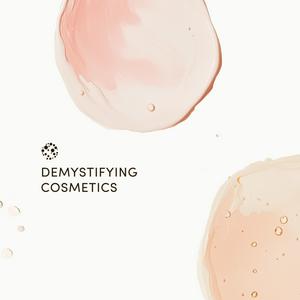In this special episode of Demystifying Cosmetics, host Jennifer Cookson steps away from formulation talk to address what many are asking right now: what are we supposed to do? With recent events in Minneapolis and the broader climate around immigration and civil rights, people are feeling overwhelmed and looking at one lever they still control—where they spend their money. Jennifer explores corporate stances, boycotts versus buycotts, and what actually makes a difference. She makes the case that beauty has always been political, provides a framework for evaluating companies beyond viral infographics, and reminds listeners that "I can't do everything" is not the same as "I can't do anything." This episode is a call for clarity over chaos, compassion over extremism, and action—even if small.Takeaways:• Beauty Has Always Been Political, Not Just Escapism: While beauty is often marketed as self-care and escapism, the truth is that beauty companies employ thousands of people, shape cultural norms, spend millions on advertising, and influence legislation through lobbying. They are not separate from society—they're part of it. When crisis happens, consumers rightfully ask brands where they stand and what they're funding.• Boycotts Work Best When Specific and Evidence-Based: Boycotts are a legitimate form of consumer protest with historical roots in civil rights and labor movements, but they work best when they are specific, evidence-based, tied to clear demands, and paired with alternative action. Not just "this brand is bad," but "this brand funds X policy and I want them to stop." That's where pressure creates change.• Evaluate Companies Through Action, Not Just Statements: Statements are easy; policies are harder. Look beyond what companies post on social media and ask: What do they actually do? Where does their money go politically? How do they treat their workers? Do they show up consistently, or only when it's safe? Real advocacy costs something, and patterns reveal values more than one-time PR moments.• Separate Constructive Civic Pressure from Destructive Extremism: If we're going to talk about being on the right side of history, we need to distinguish between legitimate consumer activism and destructive behavior. Burning things down is not consumer activism. Terrorizing communities is not justice. Responsible engagement requires clarity about tactics and outcomes.• "I Can't Do Everything" Isn't "I Can't Do Anything": Feeling emotionally tapped and overwhelmed is real, but exhaustion is not the same as helplessness. Small, real actions include supporting local immigrant advocacy groups, donating to legal defense funds, calling representatives, asking your employer what they're doing, pushing internally for corporate responsibility, spending intentionally, and listening to those directly affected.Note: This special episode reflects the host's perspective on corporate responsibility and consumer activism during a moment of national crisis. Sponsorship by Tagra does not influence the content or perspective shared in this discussion.


